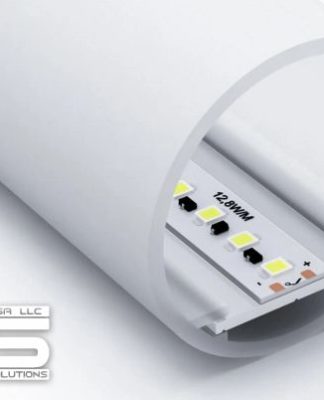Protein supplements are incredibly popular for many reasons, which we’ll get into more below. You can take a protein supplement in different forms, including shakes and powders. An alternative is to use protein capsules or pills.
Protein capsules and pills are a little different from something like a powder.
First, they usually come from collagen, bone broth, or amino acids. While the idea is the same as other supplements containing protein, there are unique pros and cons to be aware of.
Below, we’ll discuss what you should know about the benefits of protein and where protein pills might fit into this.
Why Your Body Needs Protein
High-protein diets have become increasingly popular in recent years, although there is a tendency for some people to overdo them. Undoubtedly, protein is essential for your life. Every human cell uses protein as a building block. Protein is also involved in your body’s necessary functions, including growth, development, and the repair of your tissues.
It’s one of the three major macronutrients, including fat and carbs.
You need enough protein to make sure you’re not malnourished, and you need to maintain strength and muscle mass as you get older.
The ideal amount of protein to consume each day gets murky. Some say around 56 grams daily for men, and 46 for women is adequate, while other experts say we should be consuming as much as double those recommendations.
Can Too Much Protein Be Dangerous?
Too much protein can have risks, but you’d have to consume quite a bit over any recommendations. If your diet is incredibly high in protein, you might, for example, be at a higher risk of kidney stones. Too much protein isn’t a major health concern for most people.
Signs of Protein Deficiency
It’s uncommon in America to have a protein deficiency, but for some people, it can happen. You might be deficient, including a vegan or vegetarian diet, being older, or having a chronic disease like Crohn’s.
Signs of a protein deficiency include:
- Problems with your skin, hair, and nails include brittleness and thinness.
- A higher risk of bone fractures.
- Feeling cravings and frequent hunger.
- Higher risk of infections.
- Developing fatty liver.
- Edema, which includes signs like puffy, swollen skin.
- Loss of muscle mass.
- Fatigue and weakness.
- Stomach bloating.
- Skin that splits open.
If someone has symptoms of a protein deficiency, they should talk to their health care provider about the steps they need to take immediately.
Are There Benefits of Protein Pills?
As mentioned, taking a protein pill can be different from using a supplement like whey protein, and they can have their own unique benefits.
Benefits of pills and capsules include:
- You’re less likely to experience digestive issues when compared to powders. Some people have bloating and uncomfortable symptoms with powders.
- Convenience is a factor for some people when choosing a pill over a powder.
- Pills with sources of protein have little to no calories.
- You might not like the taste of protein powder.
The major downside is that pills have little protein compared to powders and shakes. You might get up to 20 grams of protein with a protein powder. With a pill, you’ll get maybe around two grams.
The particular benefits also depend on the type of protein capsule you take:
- Collagen pills: Many types of protein pills are collagen. Collagen is a protein that helps with the health of our skin and joints and prevents bone loss and muscle mass. Collagen supplements may also help strengthen the arteries to reduce the risk of heart conditions, and some people feel collagen supplements help with leaky gut and other gut-related conditions.
- Bone broth: Some pills have bone broth protein, which has many of the same benefits as a collagen supplement. Bone broth supplements may help reduce joint pain, help the joints stay healthier, fight osteoarthritis, and reduce inflammation. They can also be good for gut health.
- Amino acids: The third type of protein capsule you might try includes amino acids. Your body needs 20 amino acids to function properly; nine are essential. Essential means you have to consume them through your food or supplements. Amino acids are the building blocks of the protein itself. Amino acids help your body break down food, build and repair tissue, make hormones and brain chemicals, and are energy sources. They also help the immune system and digestive systems.
Overall, there are benefits of taking protein pills, but these are different from the benefits of other protein supplements in some cases. Determining the particular benefits of a pill with protein means you should look at the ingredients and ensure they align with your health goals. If you’re worried about a true deficiency of protein, speak to your healthcare provider.

















